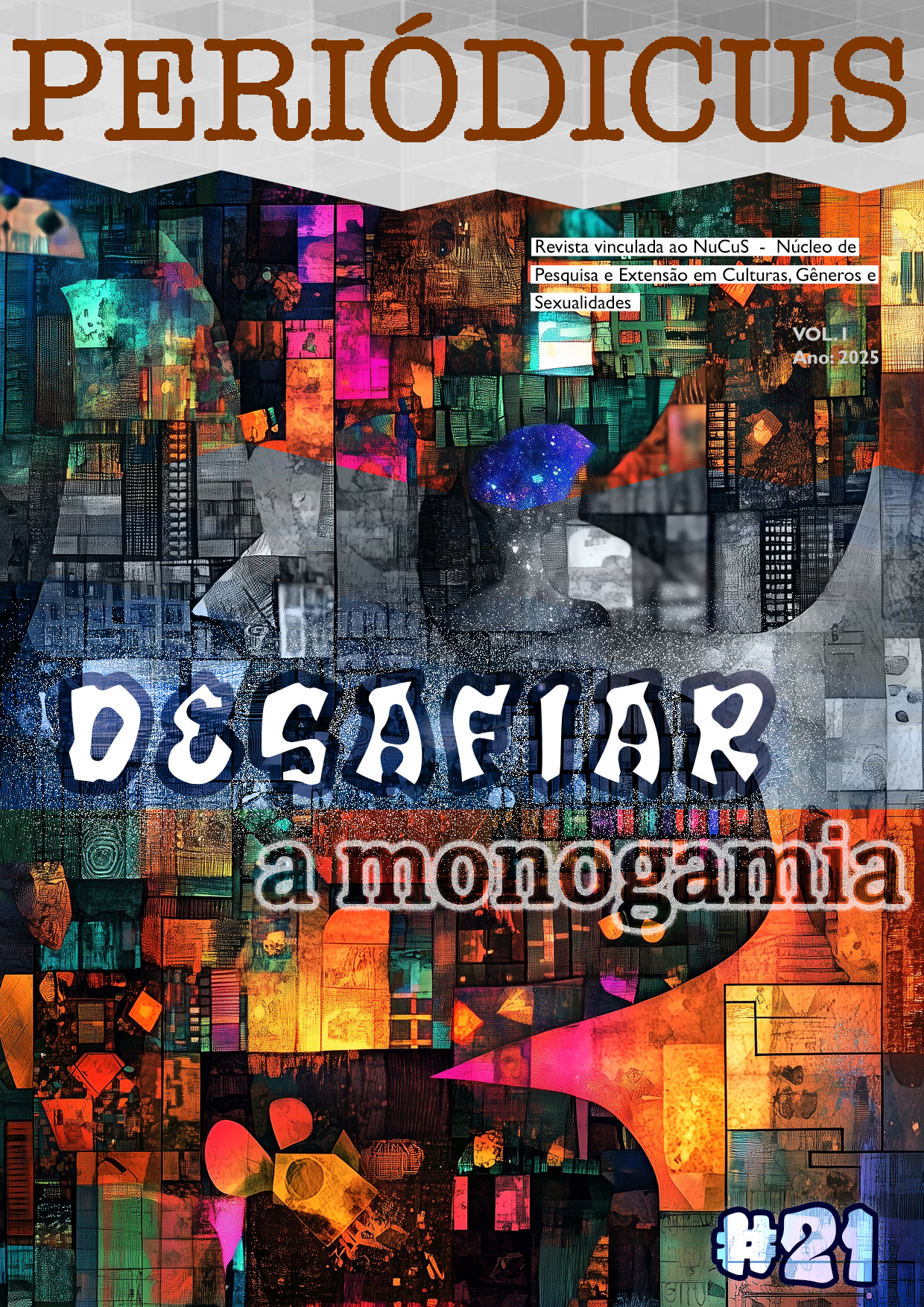Amatonormatividade homofóbica em “Aqueles dois”, de Caio Fernando Abreu
DOI:
https://doi.org/10.9771/peri.v1i21.58614Resumo
Sustentada pelo sistema da monogamia, a amatonormatividade, conforme definida por Brake (2012), assume que relacionamentos românticos, centrais e exclusivos são “normais” e universalmente desejados, relegando outras relações de afeto à invisibilidade cultural. Com base nesse conceito, propõe-se uma análise do conto “Aqueles dois”, incluso em Morangos mofados, de Caio Fernando Abreu, em que o relacionamento afetivo entre dois homens é percebido segundo a visão monogâmica e homofóbica da sociedade representada na narrativa. A análise objetiva criticar a hierarquização dos afetos e o preconceito homofóbico, além de investigar a atuação da amatonormatividade, elementos necessários para o funcionamento do sistema da monogamia. Este artigo foi desenvolvido utilizando como referenciais teóricos os estudos de Jenkins (2017), Núñez (2023) e Vasallo (2022), sobre a monogamia, e os trabalhos de Barata (2018), Calegari (2009) e Camargo (2010), sobre a obra do escritor.
Downloads
Downloads
Publicado
Como Citar
Edição
Seção
Licença
Copyright (c) 2025 Luiz Gustavo Osório Xavier

Este trabalho está licenciado sob uma licença Creative Commons Attribution-NonCommercial 4.0 International License.
Autores que publicam nesta revista concordam com os seguintes termos:
Autores mantêm os direitos autorais e concedem à revista o direito de primeira publicação, com o trabalho simultaneamente licenciado sob Licença Creative Commons Attribution Noncommercial que permite o compartilhamento do trabalho com reconhecimento da autoria e publicação inicial nesta revista, sendo vedado o uso com fins comerciais.
Autores têm autorização para assumir contratos adicionais separadamente, para distribuição não-exclusiva da versão do trabalho publicada nesta revista (ex.: publicar em repositório institucional ou como capítulo de livro), com reconhecimento de autoria e publicação inicial nesta revista.
Autores têm permissão e são estimulados a publicar e distribuir seu trabalho online (ex.: em repositórios institucionais ou na sua página pessoal) a qualquer ponto antes ou durante o processo editorial, já que isso pode gerar alterações produtivas, bem como aumentar o impacto e a citação do trabalho publicado (Veja O Efeito do Acesso Livre).








